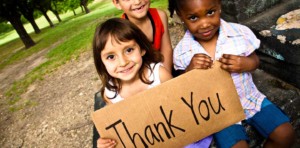Federal farm bill threatens to worsen poverty in Central Jersey
After federal lawmakers earlier this year passed tax cuts that critics warned would widen the chasm between rich and poor, they again are advancing new legislation that threatens to make life even harder for families who live in poverty.
Legislators in the House and Senate recently approved competing versions of the 2018 Farm Bill, comprehensive farm legislation typically passed every five years. It addresses everything from crop insurance and farmer training to sustainable farming practices and conservation to healthy nutrition programs for low-income families.
In the 2014 Farm Bill, nutrition programs accounted for more than three-quarters of the bill’s $956 billion cost.
Cuts proposed
But this time around, some lawmakers aim to shrink that share: The 2018 House bill ends or reduces Supplemental Nutrition Assistance Program benefits (or SNAP, formerly known as food stamps) for more than 2 million low-income people, according to the Center on Budget and Funding Priorities. SNAP is the country’s most effective hunger-fighting program, helping 1 in 8 Americans afford a basic diet, and its biggest users are children, seniors and people with disabilities, according to the center.
That’s why Catholic Charities USA is urging citizens to contact their representatives in Congress to protect access and funding for SNAP and other nutrition programs that help alleviate hunger.
“The international food security programs in the Farm Bill provide lifesaving emergency assistance and an opportunity for our most vulnerable brothers and sisters to lead healthy, productive and dignified lives,” the advocacy alert states. “These essential programs are designed to get people emergency food when disasters strike, help communities in poverty grow more of the food they need, conserve natural resources and transform landscapes, and support literacy and education through school lunches. Programs like the Supplemental Nutrition Assistance Program (SNAP), the Emergency Food Assistance Program (TEFAP) and the Commodity Supplemental Food Program (CSFP) help those most critically vulnerable and hungry here in the United States. Programs like SNAP help feed those living below the poverty line, while TEFAP and CSFP programs provide critical support to food pantries and elderly Americans.”
A local plea
Marlene Laó-Collins, executive director of Catholic Charities, Diocese of Trenton, echoed that call.
“A quote attributed to Albert Einstein I once came across haunts me and forces me to take action. He said: ‘The world is a dangerous place to live, not because of the people who are evil, but because of the people who don’t do anything about it,'” Laó-Collins said. “Let’s not let indifference get the best of us and allow selfishness and greed to rule.”
“Today, I am urging you to contact your legislator and express your opposition to the proposed Farm Bill that will dramatically cut one of the country’s biggest safety nets for people struggling with poverty and hunger,” she added. “This bill reduces eligibility and imposes tough new work requirements on people who need Supplemental Nutrition Assistance Program, or SNAP. Such changes would be devastating for many low-income families and ultimately increase poverty and hunger. If these cuts stand, food pantries – such as those run by Catholic Charities, Diocese of Trenton’s Community Services – would have to be prepared for an increase in demand.”
In 2017, more than 40,600 people – half of whom were children – received food last year from Catholic Charities in Mercer, Burlington, Monmouth and Ocean counties.
Laó-Collins and Susan Loughery, Catholic Charities, Diocese of Trenton director of operations, met this morning with Rep. Bonnie Watson Coleman’s staff (pictured, above right and below left) to advocate for various legislative proposals.
What’s next
With two versions of the bill passed in their respective chambers, lawmakers in the House and Senate are expected to spend the next week (before their August recess) negotiating to resolve their differences. The current farm law will expire Sept. 30.
“We need our supporters to contact their lawmakers now to urge them to oppose this bill and work together on a bipartisan solution that will help end hunger instead of worsen it,” Laó-Collins said.
Click here for Catholic Charities USA’s advocacy appeal with suggestions on what to tell your lawmaker.
These lawmakers represent Catholic Charities, Diocese of Trenton’s four counties: Rep. Bonnie Watson Coleman at (609) 883-0026; Rep. Thomas MacArthur at (856) 267-5182 in Burlington County or (732) 569-6495 in Ocean County; Rep. Christopher Smith at (732) 780-3035 in Monmouth County, (609) 286-2571 in Ocean County, or (609) 585-7878 in Mercer County; Rep. Frank Pallone Jr. at (732) 249-8892; and Sens. Cory Booker at (856) 338-8922 and Bob Menendez at (856) 757-5353.
Childhood poverty pervasive in New Jersey
It might seem unfathomable, to some, that poverty is pervasive in New Jersey, one of the wealthiest states in the country. After all, Central Jersey boasts some of the priciest zip codes, towns like Colts Neck and West Windsor, where the median annual income tops $160,000. And when it comes to the youngest among us, New Jersey’s children, as a whole, fare especially well: A recent study by the Annie E. Casey Foundation ranked the Garden State at third in the nation in overall child well-being, coming in especially strong in the positive measures of education and health.
But in fact, almost 11 percent of New Jerseyans live in poverty, just below the national average of 12.7 percent, according to census figures. Forty-one percent of New Jersey households are considered to be among the “working poor,” according to a recent United Way study. And 32 percent of New Jersey’s nearly 2 million children live in low-income households, according to the National Center for Children in Poverty. That’s well over 600,000 children.
Children in Passaic, Union and Cumberland counties are the poorest statewide, with more than a quarter of the kids in each county living below the poverty line, according to county health rankings compiled by the University of Wisconsin Population Health Institute.
Of the 100,000 people Catholic Charities, Diocese of Trenton serves in Central Jersey, half are children. In the counties we cover, childhood poverty ranges from 10 percent in Burlington and Monmouth counties, to 15 percent in Mercer County, to 19 percent in Ocean County, according to the county health rankings. In Trenton alone, the poverty rate is 27.6 percent, nearly double that of the rest of the state, according to census data.
Impact of poverty
Childhood poverty can have lifelong consequences. Child Trends, a Maryland-based research organization that promotes the use of data in decision-making about children, explains why:
“Research indicates that poor children are disproportionately exposed to factors that may impair brain development, and affect cognitive, social, and emotional functioning. These risks include environmental toxins, inadequate nutrition, maternal depression, parental substance abuse, trauma and abuse, violent crime, divorce, low-quality child care, and decreased cognitive stimulation (stemming in part from exposure, in infancy, to a more restricted vocabulary).
“While determining causality is complex in this context, experiencing poverty is also related to increased risks for negative health outcomes for young children and adolescents. When compared with all children, poor children are more likely to have poor health and chronic health conditions. Children in poor families are more likely to be born premature and at a low birth weight, and to develop later illnesses, such as respiratory diseases. As adolescents, poor youth are more likely to suffer from mental health problems, such as personality disorders and depression. Moreover, in comparison to all adolescents, those raised in poverty engage in higher rates of risky health-related behaviors, including smoking and early initiation of sexual activity.
“Aside from physical and mental health, poverty in childhood and adolescence is associated with a higher risk for poorer cognitive and academic outcomes, lower school attendance, lower reading and math test scores, increased distractibility, and higher rates of grade failure and early high school dropout. Poor children are also more likely than other children to have externalizing and other behavior problems, or emotional problems, and are more likely to engage in delinquent behaviors during adolescence. Finally, growing up in poverty is associated with lower occupational status and lower wages, poorer health, and deficits in working memory in adulthood.”
Food donations needed
The summer is one of the toughest times for low-income children, many of whom rely on school for free or reduced-cost breakfasts and lunches. With school out for the summer, food banks see a surge in the number of people needing assistance. To donate to Catholic Charities’ summer hunger campaign, Hunger Doesn’t Go on Vacation, go here.
 Several Catholic Charities programs work to reduce poverty and hunger, including Rapid Rehousing (for housing assistance) and Community Services (food pantry and financial assistance). Call our Access, Help and Information Center at (800) 360-7711 to connect with professional services.
Several Catholic Charities programs work to reduce poverty and hunger, including Rapid Rehousing (for housing assistance) and Community Services (food pantry and financial assistance). Call our Access, Help and Information Center at (800) 360-7711 to connect with professional services.
To subscribe to our blog posts and news releases, fill out the fields below.


